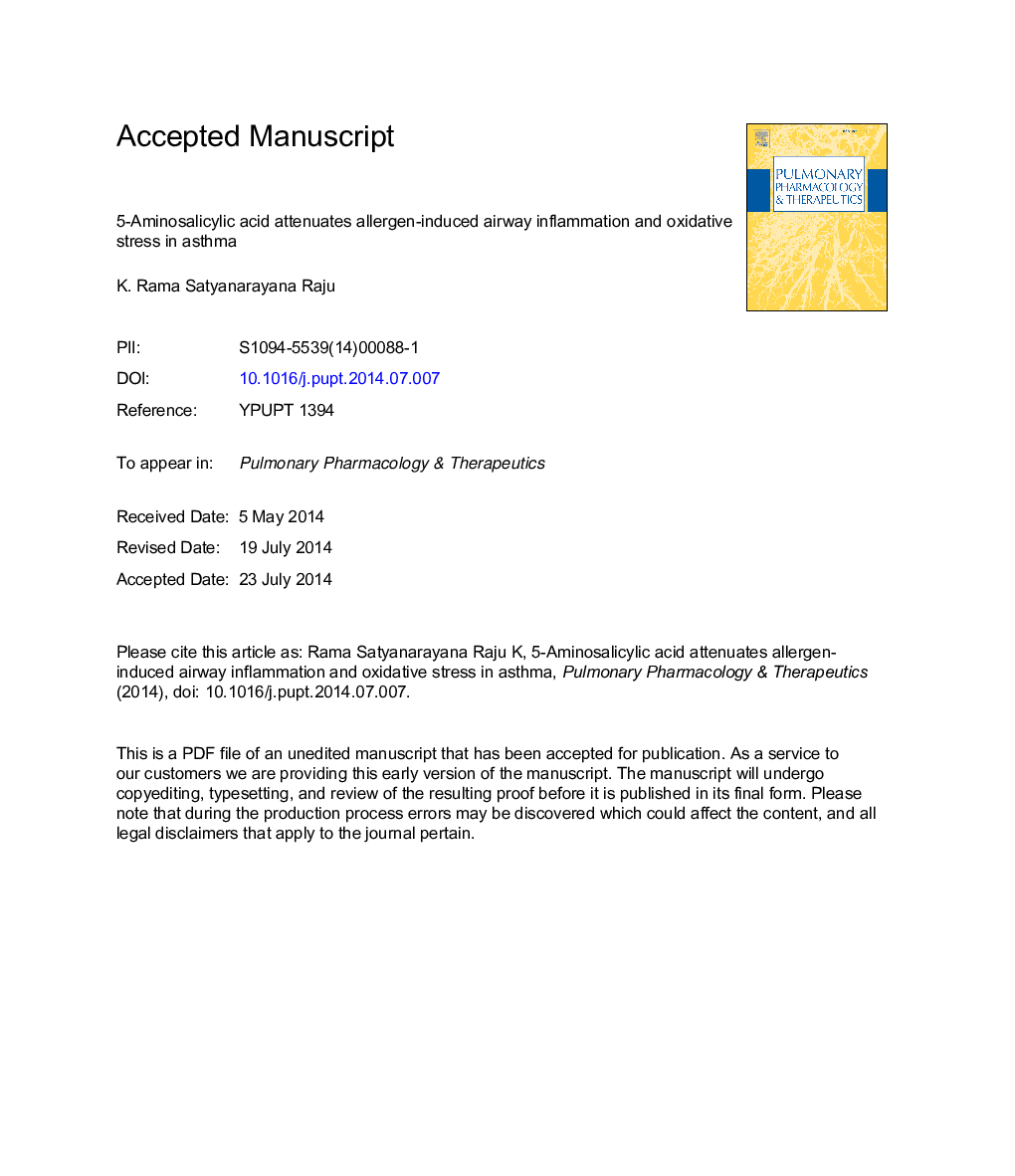| Article ID | Journal | Published Year | Pages | File Type |
|---|---|---|---|---|
| 5845745 | Pulmonary Pharmacology & Therapeutics | 2014 | 29 Pages |
Abstract
Pro-inflammatory cytokines regulate the magnitude of allergic reactions during asthma. Tumor necrosis factor - alpha (TNF-α), interleukin-6 (IL-6) and interleukin-13 (IL-13) play a crucial role in aggravating the inflammatory conditions during allergic asthma. In addition, oxidative stress contributes to the pathogenesis of asthma by altering the physiological condition resulting in the development of status asthmaticus. Anti-inflammatory corticosteroids are being widely used for treating allergic asthma. In the present study 5-aminosalicylic acid (5-ASA), a salicylic acid derivative, was evaluated, in vivo for its potential to suppress TNF-α, IL-6 and IL-13 using ovalbumin (OVA) induced allergic asthma in Balb/C mice. Oral administration of 65, 130 and 195 mg/kg 5-ASA significantly reduced the OVA induced total and differential leucocyte count, TNF-α, IL-6, IL-13, nitrite, nitrate, MDA, MPO and TPL levels in the lung lavage samples. Collectively, these findings suggest that 5-ASA is a potent immunomodulator and suppresses key Th2 cytokines production and oxidative stress in OVA-induced asthma.
Related Topics
Health Sciences
Medicine and Dentistry
Pulmonary and Respiratory Medicine
Authors
K. Rama Satyanarayana Raju, M.N. Sathish Kumar, Saurabh Gupta, Srinivas T. Naga, Jaya K. Shankar, Vishakantha Murthy, Subba Rao V. Madhunapanthula, Shashank Mulukutla, Nilesh S. Ambhore, Shashank Tummala, V.J. Vishnuvarthan, Afzal Azam, Kannan Elango,
